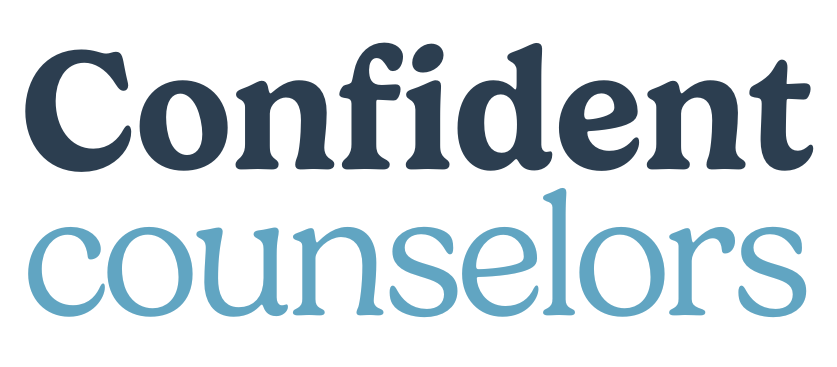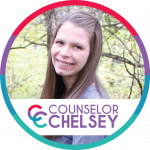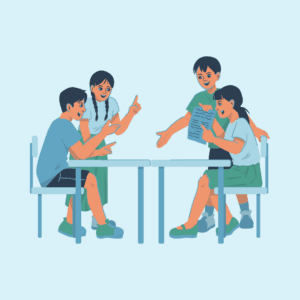Being a school counselor or school psychologist can feel a little like you’re on your own island. You’re not a teacher, you’re not part of administrative staff; it can often seem like you don’t quite belong. To make things more difficult, many school counselors or psychologists often split their time between campuses, and are only at a certain building a few days a week. It can be challenging to connect with staff as a school counselor.
Starting out as a school-based counselor, I was at my school 2-3 days a week, my office was in the basement, and I was hired by an outside mental health agency, which meant that I didn’t even have a school e-mail. I think people I worked with often forgot I existed.
While we don’t come to work to make friends, feeling connected to the people around us is important. For myself, I find that when I feel most connected and appreciated, I am most excited about going to work and putting in my best effort. I also realized that if the staff didn’t know I was there, they couldn’t use my services. They couldn’t refer students, they couldn’t ask me to be a part of creating behavior plans for students, and they couldn’t talk to me about which behavior strategies would be best in their classroom. I knew that if I wanted to be effective, something had to change. The school staff had to know I was there.
I’m excited to share with you some of the steps I have taken to go from the girl in the basement who no one knew to having great relationships with many of my colleagues.
Make Yourself Visible
Out of sight, out of mind. Unfortunately, this can be an issue for many school counselors. If teachers and other school staff don’t see you enough, they may be slow to remember that your services exist. As I previously mentioned, my office used to be in the school basement. This physical barrier meant that I didn’t just “run in” to teachers on the way to the bathroom or to fill up my water bottle. After a few too many lonely days, I decided to make an effort to be more visible. Here are some of the strategies I used:
- Go to classrooms to pick kids up, instead of calling them down.
- Walked around the halls during arrival and dismissal.
- Eat lunch in the teacher’s lounge.
- Say hello when you see a teacher or other school staff member.
- Attended meetings that are beneficial, even if it was not required.
Find your people
Having a busy schedule, and potentially not even being in the building full time, leaves very little time to connect with staff. Instead of trying to connect with everyone in the school, focus on the people you work most closely with and who support your work in the school. Maybe it’s a teacher who has several students in her class struggling with behavior, maybe it’s the school psychologist, maybe it’s the special education teacher. Whoever it is for you, start there. Say hello, pop into their classrooms, ask about their day. Find the people who appreciate you and your work, and focus your efforts there.
Connect with Teachers Outside of School
This can mean physically meeting up with teachers outside of school, but also connecting with the lives teachers have outside of school. Do the teachers in your school have kids? Ask about them, buy girl scout cookies from them, ask to see pictures of them. Just as counseling is only a part of your life, teaching is only a part of their life. There is so much more to get to know. You can also do this by connecting through outside events. Is your school doing a secret Santa? Ask to enter. Is your school having a staff get together? Sign up to bring your famous chocolate cupcakes. Capitalize on opportunities to connect with staff on a personal level, not just as professionals.
Put in the Effort
As with any friendships, building relationships with teachers and other school staff takes effort and initiative. It may be a little uncomfortable when the school secretary sees you walk by 50 times a day, but it may be the reminder she needs to call you when a parent in need stops in. It may be out of your comfort zone to eat in the teacher’s lounge with one other teacher you don’t very well. However, putting in effort will give your school staff the chance to see just how amazing you and your program are, even if it’s a bit awkward.
School counselors are busy people. Between student crises, groups, classroom lessons, IEP meetings, it may not seem like there is time left. However, taking the opportunities to connect with staff can be crucial to your own well-being and the efficacy of your role.
Tell me about your favorite ways to connect with your colleagues in the comments below!
Check out how other Confident Counselors improved teacher relationships gone wrong.
Chelsey is a licensed social worker and curriculum developer passionate about creating no-prep, engaging resources that support social-emotional learning in classrooms. With her experience as a school counselor and mentor, she’s committed to helping educators save time while fostering students' lifelong skills.









